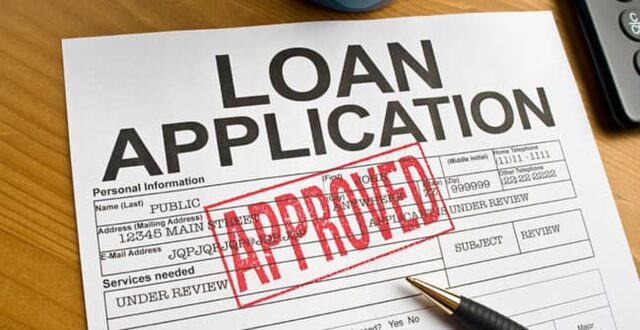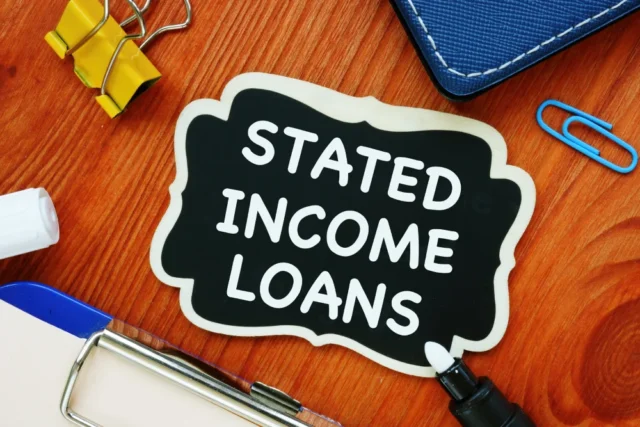
Stated income loans have gained popularity among borrowers in Washington who have non-traditional income sources or need help verifying their income through traditional documentation. While these loans offer flexibility, they also come with their own set of pros and cons. This article will explore the advantages and disadvantages of stated income loans in Washington, helping borrowers make informed decisions.
What are Stated Income Loans in Washington?
Stated income loans in Washington, also known as “alternative documentation loans” or “no-income verification loans,” are mortgage loans designed for borrowers who have difficulty providing traditional income documentation. Unlike conventional loans that require extensive income verification, stated income loans allow borrowers to state their income without providing detailed proof.
These loans are particularly beneficial for self-employed individuals, freelancers, or borrowers with non-traditional income sources. Instead of relying on W-2 forms or tax returns, borrowers can provide a signed statement or declaration of their income. This flexibility makes stated income loans viable for those with fluctuating income, irregular pay structures, or difficulty documenting their earnings.

However, it’s important to note that stated-income loans typically come with higher interest rates and may require a larger down payment than conventional loans. The reduced income verification also means lenders may scrutinize other aspects of the borrower’s financial profile, such as credit history and assets, more closely.
In Washington, stated income loans are subject to state laws and regulations governing mortgage lending practices. Borrowers must work with reputable lenders specializing in these types of loans and ensure compliance with all applicable rules.
It’s worth mentioning that the availability of stated-income loans may vary based on market conditions and lender preferences. Therefore, borrowers in Washington need to explore their options, consult with mortgage professionals, and carefully evaluate the terms and requirements of stated income loans before making a decision.
Stated income loans in Washington can provide an alternative financing solution for individuals with unique income situations, but it’s crucial to thoroughly understand the terms, costs, and risks associated with these loans before proceeding.
Pros of Stated Income Loans in Washington

Flexibility for Self-Employed Borrowers: Stated income loans provide self-employed individuals in Washington the opportunity to qualify for a mortgage based on their stated income without the need for extensive documentation. This can be beneficial for entrepreneurs, freelancers, and small business owners.
Faster Approval Process: With less emphasis on income verification, stated income loans often have a quicker approval process. This can be advantageous for borrowers in Washington who require timely financing for their real estate transactions.
Access to Homeownership: Stated income loans may open doors to homeownership for individuals who have difficulty meeting the strict income requirements of traditional loans. This can be especially helpful for borrowers with fluctuating incomes or those in unique employment situations.
Privacy and Confidentiality: Stated income loans offer a level of privacy and confidentiality, as borrowers are not required to disclose detailed income information. This can be appealing to individuals who value their financial privacy.
Cons of Stated Income Loans in Washington

Higher Interest Rates: Stated income loans in Washington often come with higher interest rates than traditional loans. Lenders mitigate the risk of limited income documentation by charging a higher rate. Borrowers should carefully evaluate the long-term costs of the loan before committing.
Limited Loan Options: Stated income loans may have limited options compared to traditional loans. Borrowers in Washington may have fewer choices in terms of loan terms, repayment options, and available programs.
Potential for Higher Down Payments: Lenders offering stated income loans in Washington may require higher down payments to offset the perceived risk. Borrowers should be prepared to provide a higher upfront cost to secure financing.
Stricter Qualification Criteria: While stated income loans offer flexibility in income verification, lenders in Washington may impose more stringent criteria in other areas, such as credit score, loan-to-value ratio, and debt-to-income ratio. Borrowers should ensure they meet these requirements to increase their chances of loan approval.
Six Tips to Consider when it comes to stated income loans in Washington

- Prepare a Detailed Explanation: While stated income loans require less documentation, it’s essential to provide a detailed explanation of your income sources. This can help lenders understand your financial situation and increase your chances of loan approval.
- Maintain a Good Credit Score: A strong credit score can enhance your chances of securing a favorable interest rate and loan terms. Ensure you maintain a good credit history and address any issues or discrepancies on your credit report.
- Save for a Larger Down Payment: While not always required, having a larger down payment can help mitigate the risks associated with stated income loans. It shows lenders that you have a vested interest in the property and can increase your chances of loan approval.
- Work with a Knowledgeable Mortgage Professional: Seeking guidance from an experienced mortgage professional specializing in stated-income loans can be beneficial. They can provide valuable insights, assist with the application process, and help you navigate the requirements specific to Washington.
- Evaluate Long-Term Financial Goals: Consider your long-term financial goals and how a stated income loan aligns with them. Assess the affordability of the loan and its impact on your overall economic well-being.
- Conduct Thorough Research: Take the time to research and compare different lenders offering stated income loans in Washington. Look for reputable lenders with a track record of providing reliable financing options and favorable terms.
Conclusion

Stated income loans can be a viable option for borrowers in Washington who have difficulty verifying their income through traditional means. These loans offer flexibility, quicker approval processes, and access to homeownership for self-employed individuals and those with non-traditional income sources.
However, borrowers should carefully consider the higher interest rates, limited loan options, potential for higher down payments, and stricter qualification criteria associated with stated income loans. It is essential to weigh the pros and cons, evaluate personal financial circumstances, and consult with a trusted mortgage professional before deciding if a stated income loan is the right choice in Washington.









